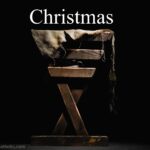
John the Baptist was the only follower of Christ to be killed before Jesus’ Crucifixion. A martyr of the truth, he died even before before the Church began, murdered because he spoke freely and accused even the powerful of their sins.
John was a relative of Jesus who prepared the way for Him, even leaping while still in the womb when his mother Elizabeth heard the voice of the newly pregnant Virgin Mary at the Visitation.
John grew up in the wilderness as a hermit. Inspired by the Holy Spirit, he was the last prophet to announce the coming of the Messiah, preaching that people should repent from their sins and be baptized.
He courageously denounced Herod Antipas’ unlawful marriage to his brother’s wife Herodias, and for this he was imprisoned in Herod’s palace fortress.
In spite of the criticism, Herod was impressed with John and liked to listen to him. He knew that he was a righteous and holy man. But Herodias wanted him dead.
After enchanting Herod with a dance, Herodias’ daughter Salome was told that she could have anything that she wished from Herod. Her mother told her to ask for the head of John the Baptist.
Reluctantly, Herod fulfilled his oath to the girl and had John executed in prison. The prophet’s head was presented to her on a silver platter. She gave the head to her mother and John’s body was buried by his disciples.
Noting similarities between the martyrdom of John and the Passion and death of Jesus, the Church commemorates the Passion of St. John the Baptist each year on August 29.
Courage in standing up for the truth:
John preached the truth without fear:
The girl hurried back to the king’s presence and made her request, “I want you to give me at once on a platter the head of John the Baptist.” The king was deeply distressed, but because of his oaths and the guests he did not wish to break his word to her. So he promptly dispatched an executioner with orders to bring back his head. He went off and beheaded him in the prison. He brought in the head on a platter and gave it to the girl. The girl in turn gave it to her mother. When his disciples heard about it, they came and took his body and laid it in a tomb.
Mark 6: 25-29
John drew courage from his relationship with God:
Dying for the right reasons:
John the Baptist had true peace and true security:
Today, 29 August, Christian tradition commemorates the martyrdom of St John the Baptist; the Messiah Himself says in praise of him: “none born of woman is greater”. He gave to God the supreme witness of his blood, sacrificing his life for truth and justice; indeed, his head was cut off at the orders of Herod, whom he had dared to tell that it was not lawful to take his brother’s wife. In the Encyclical Veritatis Splendor, recalling the sacrifice of John the Baptist, I observed that martyrdom is “an outstanding sign of the holiness of the Church”. Indeed, it “represents the high point of the witness to moral truth”. Although relatively few are called to make this supreme sacrifice, it is nonetheless “a consistent witness which all Christians must daily be ready to make, even at the cost of suffering and grave sacrifice”. At times, a truly heroic effort is also needed in daily life, in order not to give in to the difficulties that are an incentive to compromise and to live the Gospel “sine glossa”. The heroic example of John the Baptist reminds us of the martyrs for the faith who down the centuries followed courageously in his footsteps.
Pope John Paul II, Angelus Address, 29 August 2004
A dramatic scene captured in art:
A prized but bloody trophy:
St. John the Baptist is the Lord’s immediate precursor or forerunner, sent to prepare his way. “Prophet of the Most High”, John surpasses all the prophets, of whom he is the last. He inaugurates the Gospel, already from his mother’s womb welcomes the coming of Christ, and rejoices in being “the friend of the bridegroom”, Whom he points out as “the Lamb of God, who takes away the sin of the world”. Going before Jesus “in the spirit and power of Elijah”, John bears witness to Christ in his preaching, by his Baptism of conversion, and through his martyrdom
Catechism of the Catholic Church 523
John’s death highlights the Paschal Mystery:
A cautionary tale:
The Truth, Goodness, and Beauty of the Catholic Church
Recognizing the presence of God:
Share this page with friends and family to start a conversation about your faith.
Don’t miss a post. Learn more about the Catholic Church and strengthen your Catholic faith.
Find more Fiercely Catholic video issues here.
Subscribe here.



